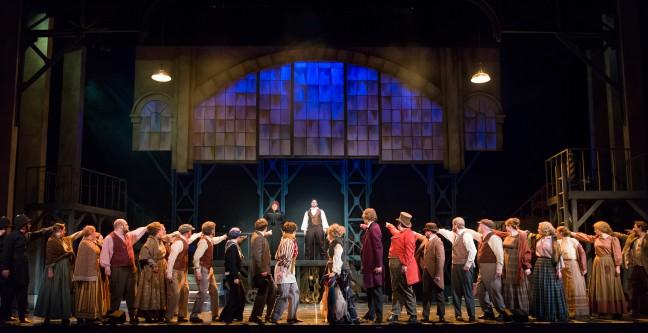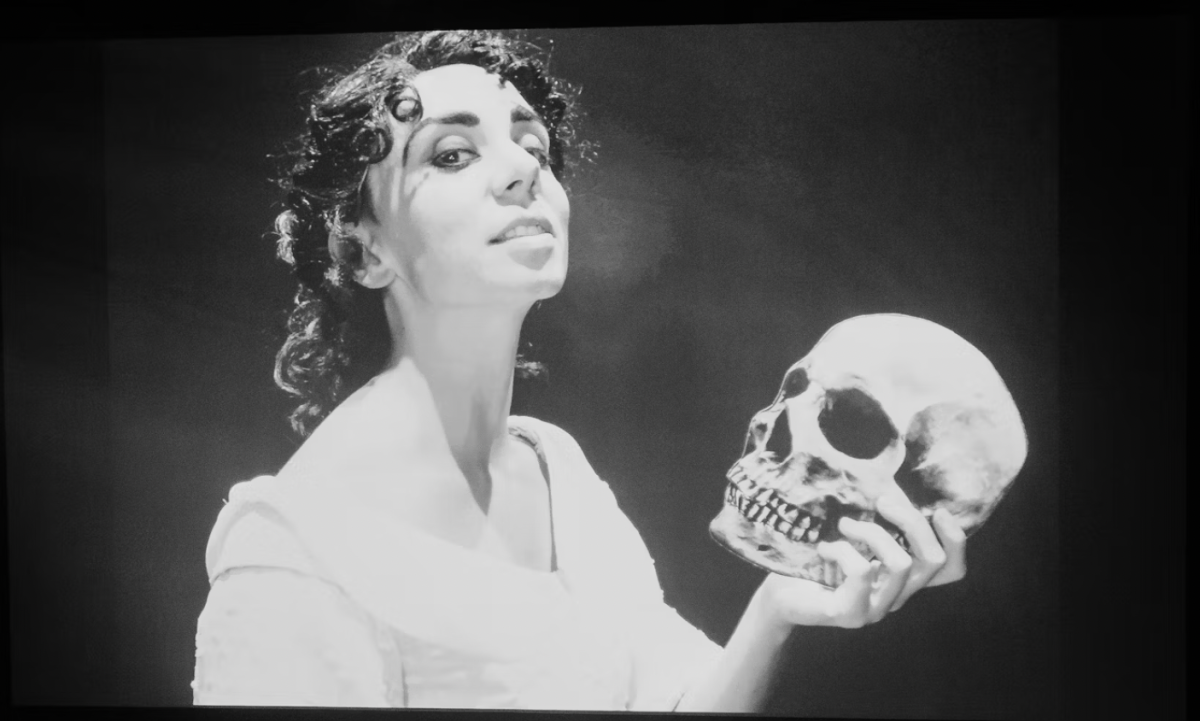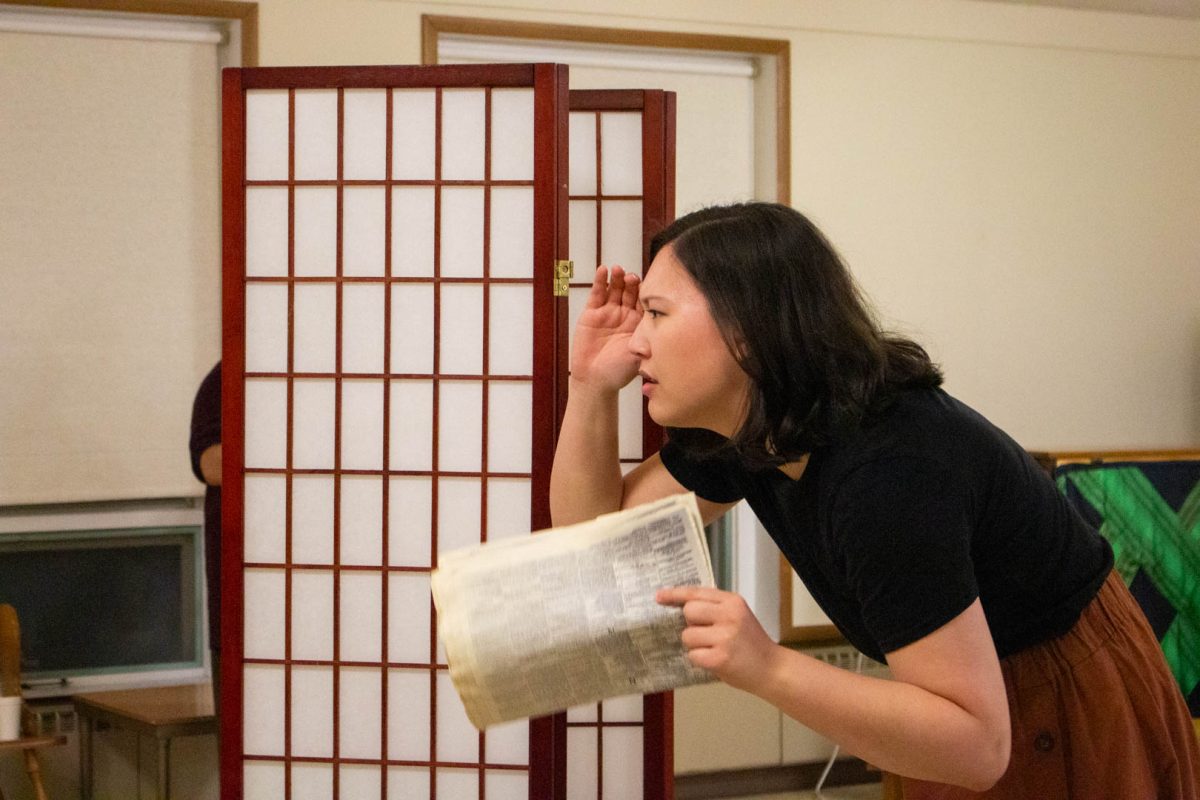Opera is an optimal form for building tension. A full orchestra backing the entire performance and a large chorus of singers add a vivacious atmospheric feeling. The stage is never bare or sparse and silence is rarely employed. Madison Opera’s first performance of the classic musical thriller “Sweeney Todd” impeccably used this medium to grasp audience attention with unwavering intensity.
The story of Sweeney Todd has evolved and morphed through different creative platforms since its conception in 1970. It began as a play, then a musical thriller, a book and finally, a movie. But it was with Stephen Sondheim’s musical thriller adaptation, “Sweeney Todd: The Demon Barber of Fleet Street,” that the story found its most fitting medium in 1979.
The dark and perverse tale follows the plight of a weathered British man when he returns to London after years of wrongful imprisonment. He seeks vengeance for the man who put him away and stole his wife and daughter. He teams up with the struggling pie maker and his old neighbor Mrs. Lovett to right the wrongs in their lives through murder and deceit.
The opera was framed in pairs: each character has a partner in crime and a foil to challenge. The duo of Sweeney Todd (Corey Crider) and Mrs. Lovett (Meredith Arwady) is by far the most captivating. Arwady and Crider have an amusing and smooth relationship on stage that bolsters their written roles.
Mrs. Lovett’s conniving, effervescent character is the perfect partner to Sweeney’s sullen, vengeful personality. Arwady, particularly, does not shy away from her massive role. As a principal in 15 songs, Arwady fills the Capital Theater with uproarious song, embellishing every crescendo and hitting every affectation perfectly. Crider mirrors her enthusiasm well with highly emotional facial expressions and a strong voice.
Tobias Ragg (Joshua Sanders) is an anomaly to the pair structure. As an orphaned young man, the character of Tobias latches on to anyone who will provide for him, doing their bidding in return. He starts with Adolfo Pirelli (Robert Goderich), a competing barber and a fraud who is killed by Todd. When his first master dies, he moves on to Mrs. Lovett who then exploits Ragg to sell her pies.
Sanders’ naïve and blindly faithful character compliments both Pirelli and Mrs. Lovett well. He employs accentuated facial expression and strong vocals to make his abused, timid role into a highlight of the show.
Toward the end of the performance, the abuse and loss become overwhelming. Ragg metamorphoses into a creature of vengeance. Sanders seamlessly changes his entire persona into something unrecognizable and morbid within a few minutes. The transformation is impressive but underdeveloped; the switch seems almost too immediate while the exciting conclusion of the play is compacted into a few short moments.
Although the end is concise and a bit dizzying, the opera as a whole does a masterful job at building emotional tension. The scenes that include the full chorus are full of straining energy, especially the mash-up of songs “Fog’s Asylum” and “City on Fire.” The entire chorus sings as insane patients in a cacophonous, shrill combination of foreboding voices.
But the increased tension makes the comic relief all the more enjoyable throughout, like the warm encapsulating feeling of calm after a long run in the cold. Scenes of fast-paced, suspenseful musical numbers filled with deep organs and dramatic violins led by Todd immediately preceded light and fun pieces led by Mrs. Lovett.
For example, Act One ended dramatically with Todd’s aggressive ballad, “Epiphany,” where he discovers his shaving business can be used as a front to kill the rich and corrupt who have wronged them as lowly poor citizens. It is dark, foreboding and morbid. Mrs. Lovett’s “A Little Priest” immediately follows as a fun and comedic retort. Arwady and Crider have an amusing and smooth relationship on stage that bolsters their written roles.
One disconcerting factor of this particular showing of the opera was a painful screeching noise that punctuated the performance. Its exact meaning in the plot seemed incongruous. Sometimes it signaled internal conflict, sometimes it came after a murder and sometimes it felt like an ephemeral being controlling the characters.
Despite this ambiguity, the noise served an important function and the opera’s most developed characteristic — its ability to increase tension and toy with the audience’s emotions.
Overall, “Sweeney Todd” was a sardonic yet humorous adaption of the famous opera, an impressive performance for the Madison audience.













